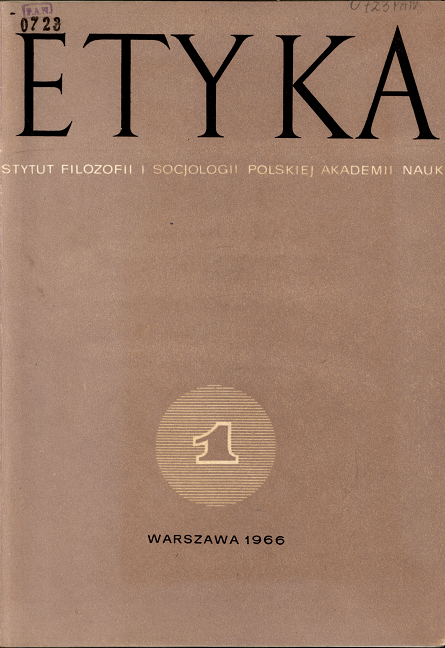Dwojakie normy
Abstract
Moral norms usually have the form of statements of obligation containing the words, ‚should’, ‚ought to’, ‚It is required … ‚, etc.; the form proper to a legal norm is the declarative sentence. In both these forms norms with good sense be preceded by the sing of assertion, ‚It is true that … ‚ and construed as a logically true statement affirming the existence of a duty or state of affairs ordained by a legislative institution. Hence, the contrary opinion denying norms to be statements in the logical sense and attributing to them the function of command or recommendation, is incorrect: for, for a norm to be realized an additional act of decision motivated by a norm of either kind, is required. That decision is expressed by an imperative sentence, addressed to the person due to realize the norm (it can also be the same person that issued the norm, commanding himself to execute it). Occasionally imperative sentences replace a norm – as, eg., in the Decalogue; in such cases, they should be regarded as elliptic expressions with an implicit motivating norm understood.Downloads
Published
Issue
Section
License
Works published in ETYKA are available under the Creative Commons Attribution No Derivatives 4.0 International Licence (CC BY-ND), which entails acknowledgement of authorship without derivative works. Under this licence, Authors keep their copyrights and agree that their works can be used again legally for any purpose, including commercial ones, except for the creation of derivative works, without the need to obtain previous consent of the Author or publisher. The articles can be downloaded, printed, copied and disseminated; under the condition that the authorship is indicated accordingly, together with the place of original publication. The Authors preserve their copyrights to the above-mentioned works without any limitation whatsoever.



